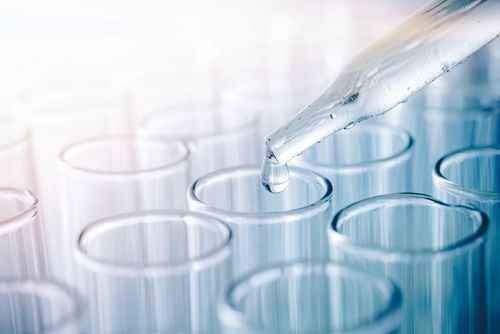Guy Sauvageau
Credit: IRIC
–
–
–
–
With a majority of survivors of advanced blood cancers nearly four years after receiving a single treatment, the UM171 molecule, developed at the Institute for Research in Immunology and Cancer (IRIC) of the University of Montreal and experienced in a clinic at Hôpital Maisonneuve-Rosemont, continues to progress in the anti-cancer arsenal. “Not only are most patients in good health, but they are not dependent on a cocktail of drugs that a good number of bone marrow transplant recipients have to take for several years”, mentioned the discoverer of this molecule, l hematologist Guy Sauvageau, a few days before Christmas.
Currently, nearly 70 patients recruited in Canada and the United States, many of whom do not respond to the best recognized treatments in oncology, are being followed by different teams following an experimental protocol with UM171. It is still too early to talk about a cure – the duration of remission must exceed five years – but the results are very encouraging. To date, the majority of patients with very high risk of recurrence of leukemia remain in remission. If things continue to progress at this rate, the number of patients treated could be doubled by the end of 2021.
A new step has just been taken in the understanding of the UM171 molecule – developed by the group of chemists under the direction of Anne Marinier, from IRIC, and named in honor of the University of Montreal -, while Guy Sauvageau and his team publish an article in Cell Stem Cell which describes its mechanism of action. “Finally, we know how UM171 works!” he launched a few days before the lifting of the embargo.
In L’article intitulé «UM171 preserves epigenetic marks that are reduced in ex vivo culture of human HSCs via potentiation of the CLR3-KBTBD4 complex ”, the 15 authors explain how the molecule uses a novel molecular mechanism to manage the epigenome of stem cells and how it might even contribute to their epigenetic rejuvenation. The first author of this important article is Jalila Chagraoui, researcher associated with the laboratory of Dr.r Sauvageau at IRIC.
The great surprise that IRIC researchers had is precisely this ability of the molecule to act as a fountain of youth on blood stem cells. It is observed in the laboratory that, three days after administration of the molecule, the stem cells present an epigenome similar to the initial cells, whereas in the absence of UM171 these cells undergo premature aging of their epigenome. This is the reason why patients transplanted with these rejuvenated cells very quickly feel an overall improvement in their quality of life. UM171 not only rejuvenates these cells, but they become more competent to produce an improved immune system. Thus, after six months, most patients no longer need immunosuppressants, a drug needed to reverse the rejection reaction that accompanies bone marrow transplantation.
The potential applications of this molecule are multiple. “We could eventually tackle autoimmune diseases and inflammatory diseases such as Crohn’s disease or ulcerative colitis,” says Professor Sauvageau.
For more than 25 years, Guy Sauvageau has been working on the trail of umbilical cord stem cells capable of somehow colonizing defective blood cells causing acute myeloid leukemia, one of the most common blood cancers in adults. From the first promising signs of the effects of the molecule in vitro, we moved on to research in animal models. “We have benefited from an accelerated transition to clinical trials in humans by virtue of the rare side effects observed and given the limited number of effective treatments for this type of disease,” he says.
The article published last week somehow sheds light on the molecular and epigenetic mechanisms involved when a stem cell hosts UM171. “It’s a bit as if we had put the cart before the horse,” illustrates the researcher, for whom fundamental research is as valuable as its applications in human medicine. This backward adventure is not exceptional, since the history of medicine is full of situations where effective treatments have been applied without fully understanding their mechanisms of action.
Given the encouraging state of patients being followed in Canada and the United States, the inconveniences associated with COVID-19 in hospital systems have not interrupted clinical trials conducted at Hôpital Maisonneuve-Rosemont under the supervision of the Dre Sandra Cohen. “Fortunately, we experienced almost no slowdown in the protocols,” comments Guy Sauvageau, 2015 winner of the Acfas Léo-Pariseau Prize and the Prize for Scientist of the Year (Press and Radio-Canada) in 2014.
–

